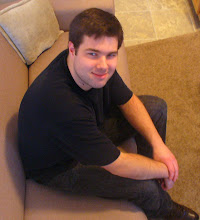Title: Due Date
Year of Release: 2010
Date Viewed: March 10th, 2011
MPAA Rating: R
If you're in the mood for a fun road trip comedy with likable characters, memorable dialogue and big laughs at every minute....rent Planes, Trains and Automobiles. Due Date wants to be that next classic but encounters too many holes in the road to travel very far.
The new odd couple is the always dependable Robert Downey Jr. as Peter Highman and rising star Zach Galifianakis as Ethan Trembley. A misunderstanding at the Atlanta airport causes the pair to be placed on the TSA's "no-fly" list. This and the loss of his wallet dampers Peter's plans for travelling home to Los Angeles to witness the birth of his first child; due to be born in just a few days. Always looking for a new friend (especially one that doesn't come from Facebook), Ethan offers him a ride. An apathetic Peter agrees but soon finds the trip to be unbearable because of his tactless personality clashing with Ethan's immaturity.
Since this is a road trip comedy, it comes as no surprise to see their journey get jeopardized by more than a few obstacles. Ethan's stash of "medical marijuana" gets them in trouble with the border police. Peter fights sleep deprivation which nearly kills him. But nothing causes more mayhem than when one of the characters says or does the wrong thing that drives the other one insane. And this is where the biggest problem lies. To make this sort of comedy work, the conflict needs to feel natural. Too often it feels forced here. It's not a case of bad chemistry. I'm still convinced both actors could work together on a really good comedy someday. It's the poor character development coming from the script that hurts more than anything. It's possible to get away with it when an actor like Downey Jr., who can be entertaining just by reading the phone book, is involved. But the same cannot be said yet for Galifianakis who seems to be a condition performer; that is, entertaining when the material is right for him. He played a great loser in The Hangover because his character was written in a cute and clever way. And Galifianakis' style of comedic timing complimented it perfectly. In Due Date, he's the same annoying loser minus the written inspiration. One scene held a glimmer of hope. Upon learning that Ethan dreams of becoming an actor, Peter challenges him to demonstrate his skills with an improvised monologue. Ethan's vulnerable side comes through when he breaks down emotionally in front of his comrade. This opens the door for the characters to find some connection, but the scene is quickly forgotten about and the opportunity is wasted.
Downey Jr. is intended to be the square Steve Martin-type to Galifiankis' John Candy imitation. But his character is so bitter and his choice of words so mean-spirited that I dreaded to watch him have conversations with anyone much less his lonely soul of a travel mate. Not to mention the exchanges are often wooden so it hurts the movie's ability to earn laughs through dialogue, which leaves dependence on gimmicks and plot turns to pick up the slack. Some of them like the great escape from the border police are entertaining enough. Others like Ethan's dog imitating his master's method of sexually pleasuring himself seem like they came from the bottom of the barrel of filler ideas.
A few other notable actors appear in what I like to call pit-stop subplots. Most of these scenarios are here to enhance the backstory of the main characters and they work suitably enough. One glaring exception is Danny McBride's scene; an outrageous side show that will probably please most of his slapstick-happy fans but left me impatiently waiting to see the plot move forward.
Movies like these make me miss John Hughes during his prime. The presence could have elevated Due Date's mediocre material into something more memorable thanks to his knack for making audiences laugh at people's misfortune yet caring for their destiny all the same. This movie is stuck between following in his footsteps while trying to avoid stumbling over its own flimsy shoes.
Rating: 4












